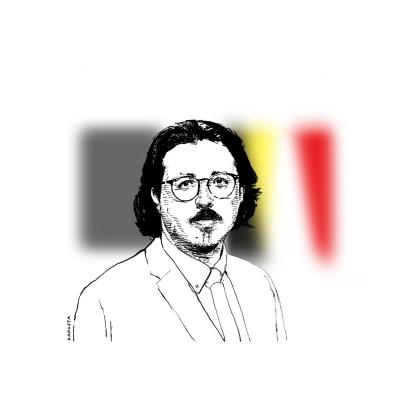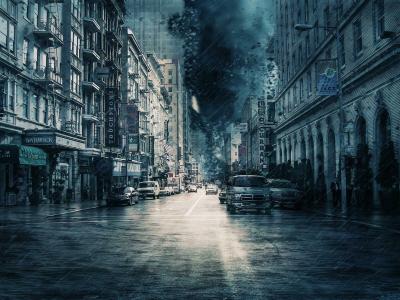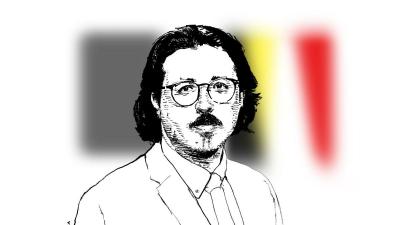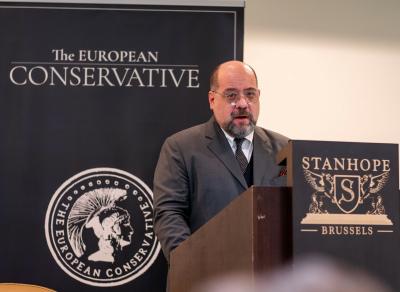In August 2020, the Christian publicist Rod Dreher wrote in the American Conservative: “Many conservatives still operate under a badly outdated framework that holds Big Business to be fundamentally conservative. The idea, a Randian one, is that Business is the antagonist to Government. Conservatives have long sided naturally with Business. Well, guess what? Big Business is now on the other side. It is arguably more a threat to conservative values than the state.”
Indeed, those corporations that are most likely to serve the libertarian ideal of the “self-made man”, such as Google, Facebook, Twitter, Microsoft, Amazon or even Ikea, are clearly in favour of a culturally and politically left-wing worldview and are currently the most important forces behind the pseudo-socialist “Great Reset”, i.e., the long-intended transformation of our society, which has now been accelerated with the help of the Covid-crisis and cloaked in fine words such as climate protection, tolerance, multiculturalism, self-liberation, or equality.
Liberalism and socialism go hand in hand
I am deliberately writing “pseudo-socialist” here, since liberalism and socialism in their actually existing form are no longer to be thought of as fundamental opposites, but rather as converging forces that argue from different starting points, but ultimately share a materialistic image of man that can be attributed to the same ideological school.
This is becoming abundantly clear especially today, when extreme individualism and extreme collectivism flow into one another, as do left-wing regulation frenzy and big-capitalist lobbying. Marx already predicted, with good reason, that capitalism in its pure form would have to tend towards monopoly and authoritarian structures; he was only wrong when he saw socialism as ultimately overcoming this state of affairs: in fact, both forces, ultra-liberalism and socialism, now operate complementarily, not antagonistically.
The result of all this is a wholly new form of government, which Oswald Spengler once alluded to as “billionaire socialism”, and which is based primarily on the elimination of the middle class, the classic bearer of bourgeois and democratic ideals.
The “Great Reset” is not a utopia
All that remains is a “liberal” elite on the one side, rich beyond imagination, which controls governments, deep state and media through its financial resources and systemic relevance, and, on the other side, the impoverished and disenfranchised masses who are kept content by “socialist” means such as bread and circuses and who are deprived of any feeling of solidarity and self-consciousness through political indoctrination, ethnic-cultural fragmentation and, last but not least, fear of terrorism or pandemics.
It should by no means be denied that at least some actors on the left as well as on the liberal spectrum see with horror where their own ideology ultimately leads and accordingly seek to “return” to earlier aggregate states such as the social market economy and classical social democracy.
However, this does not change the fact that the overwhelming majority of the people of both camps misunderstand the “Great Reset” as a utopia and therefore, unanimously and enthusiastically, commit themselves to the fight against conservative social and cultural models as being the allegedly “greatest danger” for the West and thus do not realise that by doing so, they are undermining the last barriers that hold back chaos.
Planned economy for the masses
Indeed, the Great Reset will hardly be peaceful. In fact, it does not only imply the implementation of a planned economy for the overwhelming mass of citizens on the one side and the consolidation of a previously almost unimaginable abundance of power in the hands of a tiny elite on the other, but also the actual end of progress and capitalism, as computerisation, robotisation, AI and transhumanism threaten to turn the masses into insignificant henchmen in a self-sustaining cycle, which after the extinction of the middle class is based on stagnation instead of expansion.
However, such a stagnation will hardly endure as long as there is competition between the main players of the new system. And such a competition exists in abundance: not only between the big power blocs such as China, the USA, Europe, Russia or even India or Brazil, but also between the various economic competitors and the demagogues and governments they support.
A new age is dawning
Admittedly – the upcoming conflicts, as in the late Roman Republic, are increasingly being fought out not for ideological goals, but for purely power-political issues, but the fickleness of public opinion, the limits of the population’s ability to suffer, the hunger for transcendence and finally the ultimate self-destruction of any “culture of death” may bring some unexpected factors into play.
But be that as it may, we have to come to terms with the fact that the old world is irretrievably lost. The wheel of history is more likely to advance to its initial starting point rather than being turned back by a few years. After the downfall of the plutocratic Senatorial Republic, the Caesarist revolution was legitimised by Augustus’ archaising reform policy: Will the West’s billionaire socialism be ultimately overcome by a “Carolingian” renovation?














Comments (0)